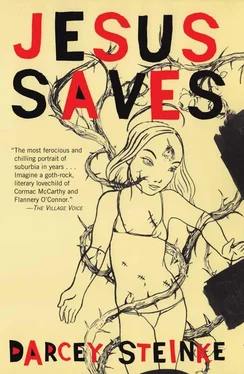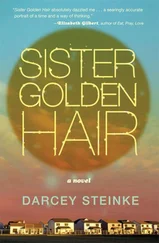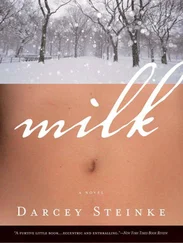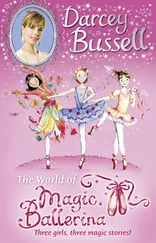She turned her ear to the wall, heard the static snap of the television obeying the remote and turning itself off, the electricity slithering out of the TV, through the cord, and back into the wall. He threw his weight up, the couch springs adjusted, and he walked like a younger man, an altogether different man, into the kitchen. He broke the vacuum of the refrigerator and felt around inside. She heard glass jars clink, the rustle of aluminum foil against the wire shelf. A fat hum kicked in as the fridge spilled cold air into the kitchen and began to generate more. The door sucked shut and she heard his hip nudge a chair, the squeak of its legs on the linoleum. He opened the microwave, closed it, his fingers pushing buttons; the familair beeping sounds rang out, then the electric drone as water molecules heated up in whatever he'd decided to eat. He turned on the kitchen faucet; water rushed through the pipe in the wall next to her bed, gave off a slight aura of damp humidity. The heat released old smells trapped in the paint: hair spray and stale smoke. The microwave beeped its electronic alarm, and water pounded against the porcelain, until her ears rang and her throat dried out. Panic spread down her torso into her pelvis, snaked out through her limbs. Her fingers felt thick and numb and her mind folded back in half, into quarters, until it became tiny as an origami bird made from delicate silver paper. She thought of flesh flushed with moving blood, and then of dead flesh, blue-gray and puffy. When you had a sore throat or bumped yourself and got a bad bruise, that was what rotting would be like, but you wouldn't feel it happening because you'd be dead. And it wasn't until she said the word, put her tongue to the roof of her mouth, and forced the air up from her lungs, that she started to struggle.
The door swung open, a pillar of hall light spread against the wall, the cat jumped up and ran through his legs; then the light was gone and he flicked on the flashlight, waved it once across the room. It veined his beard orange, showed his fish-scale eyes, and made the yarns of the carpet look shiny and magical, as if you could wish on them for love or winning money. Squatting, he set the can of food on the carpet, leaned the flashlight against the wall, and moved over her, unlatched the metal hook from the cord around her wrists and the strap from her ankles. Sinking his fingers under her armpits, he yanked her up against the wall, unpeeled the tape from her mouth, and picked up the can, took the spoon — always the same tarnished silver one with the fancy filigree handle — from his shirt pocket, and dipped it into the beef stew. It was the same always, soft carrots, potatoes, translucent onions, bits of grayish meat in a room-temperature gravy.
Each spoonful was too big and he never gave enough time between them to chew. He never spoke either, just went about his duties like a good-natured but bored nurse. A lump of stew fell onto the smocking of her nightgown. He used the spoon to scrape the gravy and stringy meat up and put it back into her mouth. In the twin panes of his glasses, she saw the girl with the short black hair. She watched the shifting jaw, the mouth purse, wrinkle, then open up again like a baby bird’ s. And while she felt the chilled spoon on her lip and the food fragmenting around her teeth, still there had to be some sort of mistake.
When the can was empty he set it aside, slid one hand under her thigh and the other just below her shoulder, and carried her into the bathroom, placed her on the toilet seat. Stepping back, he waited to hear tinkles of urine or blobs of poop. She saw the tiny green dots of his big wristwatch, the glowing second hand twitching from one dot to the next like a tiny frantic bee. The textured shower stall picked up a little flashlight and sparkled like frosted glass. She made water noises, first a waterfall, then stream water over rocks, then the ‘piss piss piss’ her mother had made when she was being potty trained.
“Oh for Christ's sake,” he said, yanking her wrist and heaving her over his shoulder.
When she was scared at night her mother would come into her room and sit at the edge of her bed and say Think of something nice. She would always envision the violets that grew on the shady side of the house.
He laid her down, took the afghan from the bottom of the bed, and covered the line of light under the door. There were pink roses and arrogant red ones. She heard the tiny teeth of his zipper disconnecting one after another and then a sound like when skin hits water in a belly flop, and her elbows skidded forward, burned on the polyester mattress. Her forehead bumped the wall hard. Lilacs were beautiful, so beautiful, and she went right down into the center of that tiny flower, to the stamen, to the pistol, to where the yellow pollen brushed off on your eyelashes and the smell made you drunk with love.
* * *
He'd stripped off her nightgown, flipped the pee-soaked mattress and given her his shirt. The material reeked of aftershave and sweat and she felt like he'd swallowed her whole, that her body floated in his dark stomach along with lumps of chewed-up chicken in a lake full of beer.
The cat curled around her head like a voluptuous wig. She felt its damp breath in her ear, its wet nose snuggled under her earlobe. She'd lain here through a myriad of untenable days and nights, one distinguishable from the other, only in the slightest rise of light. The afternoon sun illuminated the wood grain of the boarded-over window and sent out a smell of chemically processed pine, so she could see the bug corpses lying prone in the light fixture and that the decals on the headboard were Power Rangers and Ninja Turtle Warriors.
At first she'd kept track of each day by assigning it to an object, the three brown boxes in the corner of the room, the chair, the light fixture, the mattress itself. After each object was invested with a day, she'd look to the ceiling and count off one swirl of textured paint after another. It worked for a while, but a string of dark rainy days confused her and she had to give it up; all she knew now was feeding time, feeling it in the hollow of her bones as she listened for his footsteps on the carpeted stairs.
The TV talked in hushed tones of love and betrayal, of suspicion and remorse. Heat pushed up from a vent in the corner, made her sleepy, and she thought, as she often did in an effort to figure out how she got here, of all the things she'd ever done wrong. Her mother was upstairs making the beds and her little brother sat on the couch in the living room looking at his picture books. She felt reckless, threw herself against the cushions, and began to brood. She'd overheard her parents arguing and this gave her an uneasy and forbidding feeling; everything seemed impermanent and annoying. Clear snot ran under her brother's nose and drool stuck to his chin. He read his book in baby talk, his voice rising and falling, and when he turned the pages to a picture of a silly-looking rabbit with long ears, he looked at her and said, “Cat.”
“It's a rabbit, stupid,” she'd said, pushing him off the couch so he banged against the sharp edge of the coffee table and then fell onto the floor. As he got up she'd noticed how his arm hung funny, how he pressed it to his side. And while that was probably the worst, it wasn't the only mean thing she'd ever done to him. He was so gullible. She'd give him an olive and say it was a sweet grape or tell him about the Christmas before he was born, when she'd gotten a unicorn and a baby bear.
He was older now and she couldn't fool him, so she'd get the upper hand by making fun of his friends, saying they were stupid, that a girl would be crazy to go out with them, that they were ugly, greasy-haired nerds who picked boogers from their noses and ate them. Once she'd gone on for so long his face got red, his eyes teared, and he ran from the room, though he usually just tried to joke it off. He was nice to look at, with his pink skin and somber black eyes, his hair always cut a little too short. He had a smell too, tennis shoe rubber and grass.
Читать дальше
